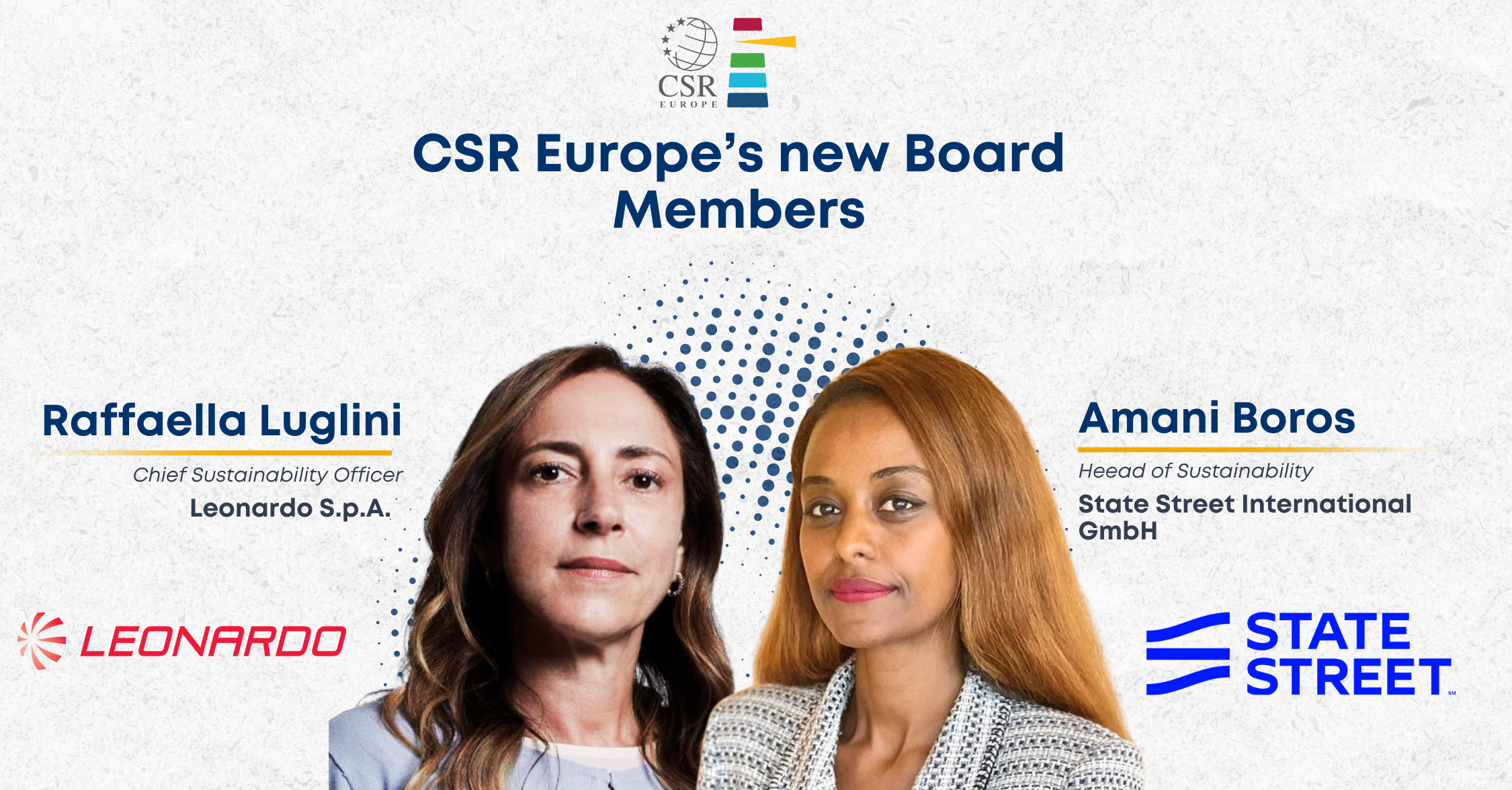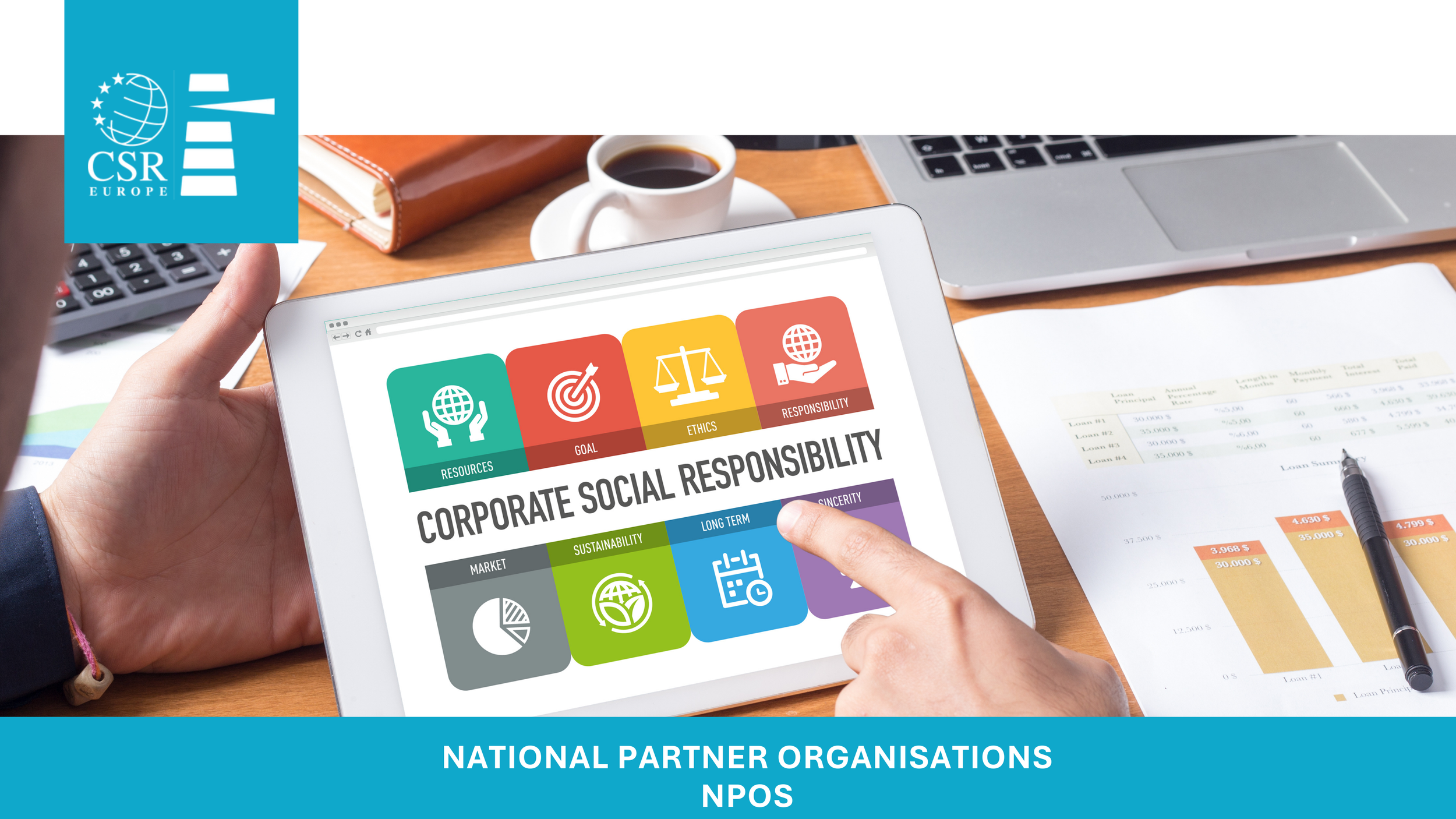Ensuring Inclusive Workforce Transformation, an interview with Caspar Henke, The Adecco Group
The European Union has set a clear direction for the future of Europe with the Green Deal and the NextGenerationEU programme: if we want to overcome the existential threat posed by climate change and reach the targets of the Paris Agreement, we need to transform our economies and societies and design a Europe that works for everyone.
Companies themselves, and also the financial markets, have embraced climate goals and sustainability requirements more than ever before.
For an organisation like CSR Europe, which has had this integration of sustainability in its core mission and DNA for more than 25 years, these are important evolutions.
This month, we sat down with Caspar Henke, ESG/Sustainability Coordinator at The Adecco Group, to talk about the current job market and the challenges faced by companies in building an inclusive workforce amid digitalisation, automatization, and the uncertainties brought about by the current international context, marked by the pandemic and the war in Ukraine.
The Adecco Group, together with Moody’s ESG and the Boston Consulting Group(BCG), is a Knowledge Partner of the CSR Europe’s Leaders Group, which kicks off on 21 April and is aimed at addressing the challenge posed by the achievement of an inclusive Green Deal.
The Leaders Group brings together front-running companies like ArcelorMittal, BASF, BBVA, Coca Cola, Enel, IBM, LKQ Europe, Orange, Societe General, Solvay, Titan, Toyota to define what is necessary to make the green and digital transition inclusive and just for all. This direction will not only be based on analysis, reflection, and dialogue but also on companies’ actions and engagement with stakeholders, including the European Commission, in different European countries.
The interview is part of the blog series “The Sustainability Agenda Towards 2030”, our monthly interviews with CSR Europe’s Board Members and Sustainability Leaders. Together we shed light on key CSR challenges of our time and how leading companies are turning threats into opportunities.
How are skills and jobs evolving amidst the green and digital transition?
There are many forces at play in the transformative processes that shape the future of work. It is important to realise that while both the green and digital transitions of the world of work have been ongoing for a while now, the transformative impact of the global pandemic has shifted expectations in the world of work significantly. Additionally, rather than a mere "green" transition in a classical environmental sense of sustainability, we do see more of a holistic understanding of impact, incorporating social and governance factors as well.
Generally, the world of work is becoming more flexible, more diverse and indeed more mindful of social and environmental implications. For industries with a stronger exposure to environmental risks, this means preparing to fundamentally transform their business models to increased scrutiny from public sector stakeholders, as well as employees, clients, and society at large. Skills to support that transformation are in high demand: our labour market analysis sees "highly green" profiles (those with a direct footprint in frontline industries like renewable energy, energy efficiency or electrification and sustainability experts) significantly outperforming overall job growth. At the same time, more and more workers across industries and job roles are re-evaluating what’s important to them in the workplace, prioritising wellbeing and autonomy. In times of labour shortage, this challenges employers to do better: Our study shows that nearly three-quarters of workers expect their companies to increase the focus mental health, while more than half of all managers find it hard to identify when staff may be struggling with mental health issues. A common recipe to tackle the green and digital transition, as well as the current re-evaluation in the word of work therefore must be human centricity.
Will the current war in Ukraine alter these evolutions in the short and long term?
Perhaps it is too early to draw meaningful conclusions for the labour market from the war against Ukraine. Naturally, the first focus must be to support those fleeing the war in finding ways into meaningful employment wherever they may find refuge. Looking at potential implications for the green transition, the European Union and its member states have already announced to accelerate plans to reduce their dependence on Russian energy imports. With limited options for large scale diversification of natural gas supplies, a particular focus of these announced efforts has been put on renewable energy, hydrogen, and increased energy efficiency. Germany, the world's largest importer of natural gas, has announced plans to double its wind energy production and triple its solar energy production by 2030 in order to reduce the need for fossil imports. As early as we are in the process, these announcements could indicate a growing demand for a range of jobs and skills associated with value chain of renewable energy, but this also includes roles related for instance to refitting heating systems, appliances and insulation in the building sector.
What are the challenges that companies are facing to build an inclusive workforce?
The right talent is increasingly hard to find. On the one hand, employers are currently eager to hire, on the other, less people are available for new opportunities. While the number of open vacancies is high, we observe that talent availability still has not recovered back to pre-crisis levels: Looking at the US labour market for example, our Talent Scarcity Index suggests that there are only 6.6 people available per 10 vacancies, pointing to a severe shortage of talent.
Inclusivity is a key lever to address this, not only because it is the right thing to do, but also because it enables organisations to expand their talent pool and benefit from new perspectives. By focussing on the specific skills and knowledge that diverse talents bring to any organisation, rather than any label, we can fight discriminatory practises. However, we also need to acknowledge the specific unmet needs that different underserved populations have in the labour market and remove any barriers that still prevent these populations from entering the world of work or moving up in it. Inclusion has to be a holistic approach and a long-time commitment. Slogans need to be followed-up with target setting and measurement and inclusive culture needs to be built both top-down and bottom-up, e.g. by training leaders and colleagues on biases, non-discrimination and equity. In support of this, the key competencies of Chief People Officers will evolve in the near future, putting an emphasis on driving change, building culture and people analytics, creating an empowering company culture.
Skilling remains a challenge on the labour market. With the half-life of skills reducing constantly in light of advancing technology and major transformations, it is more important than ever to make skilling programs more widely accessible to ensure the resilience of individuals, as well as the companies they work in. As individuals we need to embrace lifelong learning to remain relevant in the labour market. Still, it is crucial that we do not skill into a void. Currently there is insufficient skills visibility and often poor alignment between curricula and labour market demand. One way to change that is to establish a culture of skills transparency and to systematically map skills requirements. Once gaps are identified they need to be proactively addressed. This means that workers need to be supported in obtaining the right skills and labour market stakeholders need to work together with educational institutions to ensure that curricula are well-aligned with actual skill requirements.
Investing into the skills of the workforce means investing into the key asset of the organisation. However, accounting frameworks still do not fully reflect this and create disincentivising obstacles for employers to actually invest into talent development. This is particularly problematic as it hinders adaptability and resilience. Making investment into talent amortisable would go a long way to step up skilling in all sizes of organisations and to inclusively build the resilience needed to face the transformative processes in the world of work without leaving workers behind.
Could you give us some success stories at individual company level and at sector-level?
The ILO Global Business and Disability Network is an encouraging example of corporate collaboration developing into a larger platform to address key issues in the world of work. Started by a small number of companies, including The Adecco Group, as well as a European representative NGO platform, the initiative culminated into a global network of dedicated organisations sitting under the umbrella of the International Labour Organisation. The work of the network focusses on creating a global workforce culture that is respectful and welcoming of people with disabilities.
Leveraging a holistic approach to workforce transformation can multiply positive impact. One example for this is the decommissioning of 4 thermal power plants in Spain by multinational ENEL - Endesa. Working together with talent solutions company LHH, ENEL-Endesa developed a transition plan that prevented workers from being left behind while reindustrialising the local area. Workers were first trained to conduct the actual decommissioning of their plant, while LHH actively reached out to new employers to invest in the local labour market. As a result, not only will more jobs be created than were at the risk of being lost, but the new employers in the region further accelerated the green transition. Instead of the old thermal power plants, retrained workers will be able to find employment opportunities with the newly attracted companies in renewable and sustainable industries, incl. wind energy, circular economy, water treatment or micro-algae.
For more information:
Communications & Networks Manager
THE SUSTAINABILITY AGENDA TOWARDS 2030
UPCOMING EVENTS

















